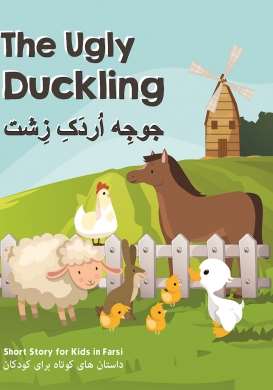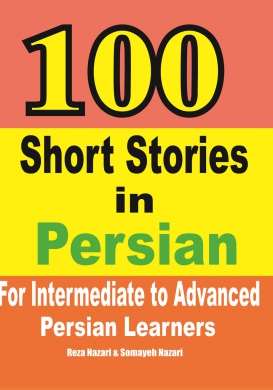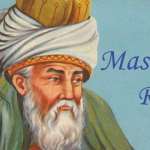Content
Proem
سرآغاز
How in the time of ‘Umar, may God be well-pleased with him, a certain person imagined that what he saw was the new moon.
هلال پنداشتن آن شخص خیال را در عهد عمر
How a snake-catcher stole a snake from another snake-catcher
دزدیدن مارگیر ماری را از مارگیری دیگر
How the companion of Jesus, on whom be peace, entreated Jesus, on whom be peace, to give life to the bones.
التماس کردن همراه عیسی علیه السلام زنده کردن استخوانها را از او
How the Súfí enjoined the servant to take care of his beast and how the servant said, “Lá hawl.”
اندرز کردن صوفی خادم را در تیمار داشت بهیمه و لاحول گفتن خادم
How the explanation of the (inner) meaning of the tale was stopped because of the hearer’s desire to hear the superficial form of it.
بسته شدن تقریر معنی حکایت به سبب میل مستمع به استماع ظاهر صورت حکایت
How the people of the caravan supposed the Súfí’s beast was ill.
التزام کردن خادم تعهد بهیمه را و تخلف نمودن
Kervan halkının Sofinin eşeğini hasta sanmaları.
گمان بردن کاروانیان که بهیمه ی صوفی رنجور است.
How the King found his falcon in the house of a decrepit old woman.
یافتن پادشاه باز را به خانهی کمپیر زن
How by Divine inspiration Shaykh Ahmad son of Khizrúya bought halwá (sweetmeat) for his creditors.
حلوا خریدن شیخ احمد خضرویه قدس الله سره العزیز جهت غریمان به الهام حق
How a certain person frightened an ascetic, saying, “Weep little, lest thou become blind.”
ترسانیدن شخصی زاهد را که کم گری تا کور نشوی
Conclusion of the story of the coming to life of the bones at the prayer of Jesus, on whom be peace!
تمامی قصهی زنده شدن استخوانها به دعای عیسی علیه السلام
How a peasant stroked a lion in the dark, because he thought it was his ox.
خاریدن روستایی در تاریکی شیر را به گمان آن که گاو اوست
How the Súfís sold the traveller’s beast (to pay) for the (expenses of the) mystic dance.
فروختن صوفیان بهیمهی مسافر را جهت سماع
How the criers of the Cadi advertised an insolvent round the town.
تعریف کردن منادیان قاضی مفلسی را گرد شهر
How the prisoners laid a complaint of the insolvent’s high-handedness before the agent of the Cadi.
شکایت کردن اهل زندان پیش وکیل قاضی از دست آن مفلس
BASLIK YOK
تتمه ی قصه ی مفلس
Parable
مثل
How men blamed a person who killed his mother because he suspected her (of adultery).
ملامت کردن مردم شخصی را که مادرش را کشت به تهمت
How the King made trial of the two slaves whom he had recently purchased.
امتحان پادشاه به آن دو غلام که نو خریده بود
How the slave, from the purity of his thought, swore to the truth and loyalty of his friend.
قسم غلام در صدق و وفای یار خود از طهارت ظن خود
How the (King’s) retainers envied the favourite slave.
حسد کردن حشم بر غلام خاص
In the wilderness it fell amongst owls.
گرفتار شدن باز میان جغدان به ویرانه
How the thirsty man threw bricks from the top of the wall into the stream of water.
کلوخ انداختن تشنه از سر دیوار در جوی آب
How the Governor commanded a certain man, saying, “Root up the thorn bush which you have planted on the road.”
فرمودن والی آن مرد را که این خار بن را که نشاندهای بر سر راه بر کن
How friends came to the madhouse for Dhu ’l-Nún may God sanctify his honoured spirit
آمدن دوستان به بیمارستان جهت پرسش ذو النون مصری
How the disciples understood that Dhu ’l-Nún had not become mad, (but) had acted with intention
.فهم کردن مریدان که ذو النون دیوانه نشده است قاصد کرده است
Resumption of the story of Dhu ’l-Nún, may God sanctify his spirit!
رجوع به حکایت ذو النون
How Luqmán’s master tested his sagacity.
امتحان کردن خواجهی لقمان زیرکی لقمان را
How the excellence and sagacity of Luqmán became manifest to those who made trial (of him).
ظاهر شدن فضل و زیرکی لقمان پیش امتحان کنندگان
Conclusion of (the story) how the (other) retainers envied the favourite slave.
تتمه ی حسد آن حشم بر آن غلام خاص
How reverence for the message of Solomon, on whom be peace, was reflected in the heart of Bilqís from the despicable form of the hoopoe.
عکس تعظیم پیغام سلیمان علیه السلام در دل بلقیس از صورت حقیر هدهد
How a philosopher showed disbelief at the recitation of (the text), “if your water shall have sunk into the ground.”
انکار فلسفی بر قرائت إن أصبح ماؤکم غورا
How Moses, on whom be peace, took offence at the prayer of the shepherd.
انکار کردن موسی علیه السلام بر مناجات شبان
How the high God rebuked Moses, on whom be peace, on account of the shepherd.
عتاب کردن حق تعالی با موسی علیه السلام از بهر آن شبان
How the (Divine) revelation came to Moses, on whom be peace, excusing that shepherd.
وحی آمدن موسی را علیه السلام در عذر آن شبان
How Moses, on whom be peace, asked the high God (to explain) the secret of the predominance of the unjust.
پرسیدن موسی علیه السلام از حق تعالی سر غلبه ی ظالمان
How an Amír harassed a sleeping man into whose mouth a snake had gone.
رنجانیدن امیری خفتهای را که مار در دهانش رفته بود
On putting trust in the fawningness and good faith of the bear
. اعتماد کردن بر تملق و وفای خرس
How a sightless beggar said, “I have two blindnesses.”
گفتن نابینای سائل که دو کوری دارم
Continuation of the story of the bear and of the fool who had put trust in its good faith.
تتمهی حکایت خرس و آن ابله که بر وفای او اعتماد کرده بود
How Moses, on whom be peace, said to one who worshipped the (golden) calf, “Where is (what has become of) thy vain scepticism and precaution?”
گفتن موسی علیه السلام گوساله پرست را که آن خیال اندیشی و حزم تو کجاست
How the man of sincere counsel, after having done his utmost in (the way of) admonition, took leave of him who was deluded by (his confidence in) the bear.
ترک گفتن آن مرد ناصح بعد از مبالغهی پند مغرور خرس را
How the madman sought to ingratiate himself with Jálínús (Galen), and how Jálínús was afraid.
تملق کردن دیوانه جالینوس را و ترسیدن جالینوس
The cause of a bird’s flying and feeding with a bird that is not of its own kind.
سبب پریدن و چریدن مرغی با مرغی که جنس او نبود
Conclusion of the (story concerning the) trust of that deluded man in the fawningness of the bear.
تتمه اعتماد آن مغرور بر تملق خرس
How Mustafá (Mohammed), on whom be peace, went to visit the (sick) Companion; and an exposition of the profit of visiting the sick.
رفتن مصطفی علیه السلام به عیادت صحابی و بیان فایده عیادت
How the high God revealed to Moses, on whom be peace, (the words), “Wherefore didst not thou visit Me in sickness?”
وحی کردن حق تعالی به موسی علیه السلام که چرا به عیادت من نیامدی
How the gardener isolated the Súfí, the jurist, and the descendant of ‘Alí from one another.
تنها کردن باغبان صوفی و فقیه و علوی را از همدیگر
Returning to the story of the sick man and the visit paid (to him) by the Prophet, God bless him and grant him peace!
رجعت به قصه مریض و عیادت پیغامبر علیه السلام
How a certain Shaykh said to Báyazíd, “I am the Ka‘ba: perform a circumambulation round me.”
گفتن شیخی بایزید را که کعبه منم گرد من طوافی میکن
Story
حکایت
How the Prophet-God bless and save him! perceived that the cause of that person’s sickness was irreverence in prayer.
دانستن پیغامبر صلی الله علیه و آله که سبب رنجوری آن شخص گستاخی بوده است در دعا
How Dalqak excused himself to the Sayyid-i Ajall (who asked him) why he had married a harlot.
عذر گفتن دلقک با سید که چرا فاحشه را نکاح کرد
How an inquirer managed to draw into conversation an eminent (saintly) man who had feigned to be mad.
به حیلت در سخن آوردن سائل آن بزرگ را که خود را دیوانه ساخته بود
How the dog attacked the mendicant who was blind.
حمله بردن سگ بر کور گدا
How the Police Inspector summoned the man who had fallen dead-drunk (on the ground) to (go to) prison.
خواندن محتسب مست خراب افتاده را به زندان
How the inquirer, for the second time, drew that eminent (saint) into conversation, in order that his condition might be made better known (to the inquirer).
دوم بار در سخن کشیدن سایل آن بزرگ را تا حال او معلوم تر گردد
Conclusion of the admonishment given by the Prophet, God bless and save him, to the sick man.
تتمه ی نصیحت رسول صلی الله علیه و آله بیمار را
How the Prophet, God bless and save him, gave injunctions to the sick man and taught him to pray
. وصیت کردن پیغامبر صلی الله علیه و آله مر آن بیمار را و دعا آموزانیدنش
How Iblís awakened Mu‘áwiya may God be well-pleased with him! saying, “Arise, it is time for prayer.”
بیدار کردن ابلیس معاویه را که خیز وقت نماز است
How Iblís gave Mu‘áwiya, may God be well-pleased with him, a fall, and practiced dissimulation, and how Mu‘áwiya answered him.
از خر افکندن ابلیس معاویه را و رو پوش و بهانه کردن و جواب گفتن معاویه او را
How Iblís again made answer to Mu‘áwiya.
باز جواب گفتن ابلیس معاویه را
How Mu‘áwiya again exposed the deceitfulness of Iblís.
باز تقریر کردن معاویه با ابلیس مکر او را
How Iblís again replied to Mu‘áwiya.
باز جواب گفتن ابلیس معاویه را
How Mu‘áwiya dealt sternly with Iblís.
عنف کردن معاویه با ابلیس
How Mu‘áwiya complained of Iblís to the most high God and besought His aid.
نالیدن معاویه به حضرت حق تعالی از ابلیس و نصرت خواستن
How Iblís once more exhibited his deceit.
باز تقریر ابلیس تلبیس خود را
How Mu‘áwiya once more pressed Iblís hard .
باز الحاح کردن معاویه ابلیس را
How a cadi complained of the calamity of (holding) the office of cadi, and how his deputy answered him.
شکایت قاضی از آفت قضا و جواب گفتن نایب او را
How Mu‘áwiya may God be well pleased with him! induced Iblís to confess
.به اقرار آوردن معاویه ابلیس را
How Iblís told truly his hidden thought to Mu‘áwiya may God be well-pleased with him!
راست گفتن ابلیس ضمیر خود را به معاویه
The excellence of the remorse felt by one who was sincere (in his devotion) for having missed the congregational prayers.
فضیلت حسرت خوردن آن مخلص بر فوت نماز جماعت
Conclusion of the confession made by Iblís to Mu‘áwiya of his deceit.
تتمهی اقرار ابلیس به معاویه مکر خود را
How a thief escaped because some one gave the alarm to the master of the house, who had nearly overtaken and caught the thief.
فوت شدن دزد به آواز دادن آن شخص صاحب خانه را که نزدیک آمده بود که دزد را دریابد و بگیرد
The story of the Hypocrites and their building the Mosque of Opposition.
قصهی منافقان و مسجد ضرار ساختن ایشان
How the Hypocrites cajoled the Prophet God bless and save him!—that they might take him to the Mosque of Opposition.
فریفتن منافقان پیغامبر را تا به مسجد ضرارش برند
How one of the Companions may God be well-pleased with them! thought (to himself) disapprovingly, “Why does not the Prophet God bless and save him! throw a veil (over their hypocrisy)?”
اندیشیدن یکی از صحابه به انکار که رسول (ص) چرا ستاری نمیکند
Story of the person who was seeking after his stray camel and inquiring about it.
قصه ی آن شخص که اشتر ضالهی خود میجست و میپرسید
On being perplexed amidst discordant doctrines and finding (a means of) escape and deliverance.
متردد شدن در میان مذهبهای مخالف و بیرون شو و مخلص یافتن
On making trial of everything, so that the good and evil which are in it may be brought to view.
امتحان هر چیزی تا ظاهر شود خیر و شری که در وی است
Explaining the moral of the story of the person seeking (the lost) camel.
شرح فایده ی حکایت آن شخص شتر جوینده
Showing that there is in every soul the mischief of the Mosque of Opposition.
بیان آن که در هر نفسی فتنهی مسجد ضرار است
Story of the Indian who quarrelled with his friend over a certain action and was not aware that he too was afflicted with (guilty of) it.
حکایت هندو که با یار خود جنگ میکرد بر کاری و خبر نداشت که او هم بدان مبتلاست
How the Ghuzz set about killing one man in order that another might be terrorised.
قصد کردن غزان به کشتن یک مردی تا آن دگر بترسد
Explaining the state of those who are self-conceited and unthankful for the blessing of the existence of the prophets and saints peace be unto them!
بیان حال خود پرستان و ناشکران در نعمت وجود انبیا و اولیا علیهم السلام
How an old man complained of his ailments to a doctor, and how the doctor answered him.
شکایت گفتن پیر مردی به طبیب از رنجوریها و جواب گفتن طبیب او را
The story of Júhí and the child who cried lamentably beside his father’s bier.
قصهی جوحی و آن کودک که پیش جنازهی پدر خویش نوحه میکرد
Timet puer quidam hominem corpulentum. “Ne timueris,” inquit, “O puer; ego enim vir non sum.” [About a boy’s fear of the corpulent man and how that person said, “Don’t be afraid, O boy, since I am not manly.”]
ترسیدن کودک از آن شخص صاحب جثه و گفتن آن شخص که ای کودک مترس که من نامردم
The story of an archer and his fear of a horseman who was riding in a forest.
قصهی تیر اندازی و ترسیدن او از سواری که در بیشه میرفت
Story of the desert Arab and his putting sand in the sack and the philosopher’s rebuking him.
قصه ی اعرابی و ریگ در جوال کردن و ملامت کردن آن فیلسوف او را
The miracles of Ibráhím son of Adham on the seashore.
کرامات ابراهیم ادهم بر لب دریا
The beginning of the gnostic’s illumination by the Light which sees the invisible world.
آغاز منور شدن عارف به نور غیب بین
How a stranger reviled the Shaykh and how the Shaykh’s disciple answered him.
طعنه زدن بیگانه ای در شیخ و جواب گفتن مرید شیخ او را
The rest of the story of Ibráhím son of Adham may God sanctify his spirit! on the sea-shore.
بقیه ی قصه ی ابراهیم ادهم بر لب آن دریا
The statement of a certain individual that God most High would not punish him for sin, and Shu‘ayb’s answer to him.
دعوی کردن آن شخص که خدای تعالی مرا نمیگیرد به گناه و جواب گفتن شعیب علیه السلام مر او را
Remainder of the story of the stranger’s reviling the Shaykh.
بقیه ی قصه ی طعنه زدن آن مرد بیگانه در شیخ
How ‘Á’isha may God be well-pleased with her! said to Mustafá (Mohammed), on whom be peace, “Thou performest the prayer anywhere, without a prayer carpet. How is that?”
گفتن عایشه مصطفی را علیه السلام که تو بیمصلا به هر جا نماز میکنی چون است
How the mouse pulled (the rope attached to) the camel’s nose-ring and became self conceited.
کشیدن موش مهار شتر را و متعجب شدن موش در خود
The miracles of the dervish who was suspected of theft in a ship.
کرامات آن درویش که در کشتی متهمش کردند
How some Súfís abused a certain Súfí, saying that he talked too much in the presence of the Shaykh.
تشنیع صوفیان بر آن صوفی که پیش شیخ بسیار میگوید
How the dervish excused himself to the Shaykh.
عذر گفتن فقیر به شیخ
Explaining (that there are) some assertions the truth of which is attested by their very nature.
بیان دعویی که عین آن دعوی گواه صدق خویش است
How Yahyá, on whom be peace, in his mother’s womb bowed in worship to the Messiah (Jesus), on whom be peace.
سجده کردن یحیی علیه السلام در شکم مادر مسیح را علیه السلام
On raising a difficulty as to this story.
اشکال آوردن بر این قصه
The answer to the difficulty.
جواب اشکال
On mute eloquence and the understanding of it.
سخن گفتن به زبان حال و فهم کردن آن
How worthless sayings find acceptance in the minds of worthless folk.
پذیرا آمدن سخن باطل در دل باطلان
On seeking the tree whereof none that eats the fruit shall die.
جستن آن درخت که هر که میوهی آن درخت خورد نمیرد
How the Shaykh explained the hidden meaning of the tree to the seeker who was in the bondage of formalism.
شرح کردن شیخ سر آن درخت را با آن طالب مقلد
How four persons quarrelled about grapes, which were known to each of them by a different name.
منازعت چهار کس جهت انگور که هر یکی به نام دیگر فهم کرده بود آن را
How dissension and enmity amongst the Ansár were removed by the blessings of the Prophet may God bless and save him!
برخاستن مخالفت و عداوت از میان انصار به برکات رسول صلی الله علیه و آله
The story of the ducklings which were fostered by a domestic fowl.
قصه ی بط بچگان که مرغ خانگی پروردشان
How the pilgrims were amazed at the miracles of the ascetic whom they found (living) alone in the desert.
حیران شدن حاجیان در کرامات آن زاهد که در بادیه تنهاش یافتند
by: Reza about (category: Masnavi, Persian Poetry)











What people say about "Masnavi-Book 2 مثنوی دفتر دوم"?
No one replied yet.